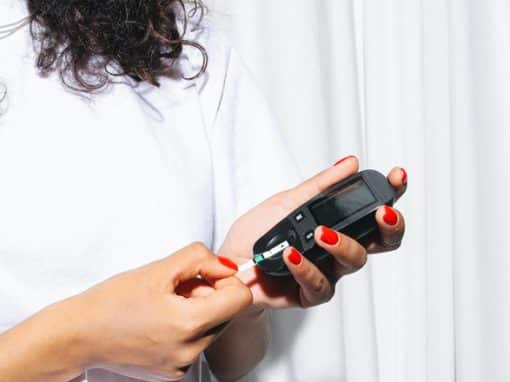Last week, the UK Prime Minister Rishi Sunak announced plans to review the fit note system for people who aren’t well enough to work, with a focus on mental health. His speech given on 19 April 2024 continued a rhetoric from the Conservative party regarding mental...
Attention Deficit Hyperactivity Disorder (ADHD)
8%
of the population are affected by ADHD
4 in every 5 adults
aren't getting any treatment for their emotional or mental health
£800k
is spent on research each year into ADHD in the UK
Related Conditions:
What is ADHD?
Attention Deficit Hyperactivity Disorder (ADHD) is a childhood-onset neurodevelopmental disorder that interferes with functioning through a persistent pattern of inattention and/or hyperactivity-impulsivity.
What are the signs and symptoms?
Though most cases are diagnosed during childhood (children between 6 – 12 years old), it can also affect adults. Those with ADHD may experience high activity levels, difficulty remaining still for long periods of time, and limited attention spans.
ADHD is diagnosed as one of three types: Inattentive type, Hyperactive/Impulsive type or combined. Have a look at the signs and symptoms of each ADHD type.
Inattentive Type type:
- Has problems staying focused on tasks or activities, such as lectures, conversations, or long reading. (e.g. Short attention span and easily distracted).
- Does not seem to listen when spoken to (mind seems to be elsewhere)
- Does not pay close attention to details or makes careless mistakes in school or with job tasks.
- Has problems organizing and prioritizing tasks and work (e.g. misses deadlines, does not manage time well)
- Avoids or dislikes tasks that require sustained mental effort, such as preparing reports and completing forms.
- Appears forgetful or loses things. (e.g. with doing chores and/or running errands. Older teens and adults may forget to pay bills, return phone calls).
Hyperactive/ Impulsive type:
- Restlessness: for example - cannot sit still, constantly fidgeting, tapping hands or feet, running around)
- Difficulty concentrating
- Excessive talking
- Lack of self-control or self-regulation: for example - cannot wait their turn, blurts out answers before a question has finished
- Breaking boundaries: for example - cutting into conversations, games or activities or using other people’s things without permission.
- Little or no sense of danger
What are the causes of ADHD?
There is no single factor that increases the chance of developing ADHD. Instead, a combination of genetic, pre/perinatal, and environmental factors are thought to be involved. These impact the functioning of several brain networks which in turn leads to altered behaviour.
Genetics: Evidence shows relatives of a child with ADHD are more likely to have ADHD themselves. For example, three out of four children with ADHD have a relative with the disorder.
Other Factors: Certain groups are also believed to be more at risk:
- Premature births: Babies who are born before the 37th week mark are more at risk of ADHD.
- Smoking, alcohol or extreme stress during pregnancy
- People with epilepsy
- People who have had severe head injuries
What are common treatments for ADHD?
Therapy:
This focuses on helping a person control their behaviour. Examples of therapy include:
Psychoeducation: Learning about ADHD and discussing its effects can help you and your parents to cope and live with ADHD.
Behaviour therapy: Using a reward system, people with ADHD learn behaviours to control their ADHD.
Cognitive Behaviour Therapy: Therapy where you explore your thoughts, feelings and behaviour which can help manage your ADHD.
Medication:
Medications licensed for the treatment of ADHD have a common action to affect the activity of brain regions that are important in attention and impulsive behaviour. In slightly different ways, these medications facilitate the levels or actions of the chemical messenger (neurotransmitter) noradrenaline in the brain. These medications are:
- Methylphenidate
- Lisdexamfetamine
- Dexamfetamine
- Atomoxetine
- Guanfacine
What help and resources are available for people who need support or further support?
For information and advice:
It is important to gain a better understanding of ADHD to provide the best support you or your loved ones need. They provide diagnosis, more information on treatments available and help you connect to the right support.
- ADHD Institute (See here)
- ADDISS - Attention Deficit Disorder Information and Support Services (See here)
- ADHD Foundation: Mental Health, Education, and Training Services (See here)
- Doctor: Doctors can give you a safe space to talk and answer any questions you may have.
Support Groups:
Support groups help you cope with the disorder and get access to professional treatment and people who are experiencing the same conditions.
- The Royal College of Psychiatrist (See here)
- Mind Room (See here)
- CAMHS (See here)
What are the recent developments in research for ADHD?
Attention control training for infants at risk of ADHD:
Mark Johnson and a team from King’s College London and the University of Southampton are using a radical approach to test whether eye-tracking technology can help increase concentration and attention span in young children. Find out more.
Enjoying this insight? Want to see more like it?
By funding research we can transform what it means to experience anxiety, advancing treatments and improving the lives of millions of people.
Our research into ADHD

Adapting and testing an integrated care model for treatment of Type 1 diabetes and mental health co-morbidities
People with Type 1 diabetes are at a higher risk of developing depression, anxiety, and early mortality. Can an existing care model be adapted to help? More about this project

DATAMIND
The DATAMIND platform is a UK-wide mental health data research hub that will transform mental health research. More about this project

Sex hormones and fear inhibition: A novel exploration of why women are so vulnerable to anxiety disorders
Do natural variations in hormones, such as oestrogen, make anxiety disorders more likely? If so does this affect the way people respond to treatment? More about this project
Related Posts
Tributes to Lea Milligan, MQ’s CEO
It is with great sadness that we announce the death of MQ’s CEO Lea Milligan who passed away following a sudden illness on Monday the 15th of April. Lea dedicated his life to helping other people. He turned down a place at Oxford University, deciding instead to launch...
How Stress Can Affect Mental Health
This Stress Awareness month, we’re considering how stress affects people differently and what to look for if you’re stressed. Although stress is not a mental illness, it can be the cause of, and the symptom of one. Some people are more responsive to stressful...
Read next
View our research projects
Read more about different mental health conditions
Our research projects
Explore how our world-class researchers are working tirelessly to tackle mental illness.
View our research projects
Mental health conditions
Learn more about different mental health conditions, and the research we're doing to transform the lives of those affected by them.
Read more about different mental health conditions
Take part in research
How you can get involved in mental health research.


